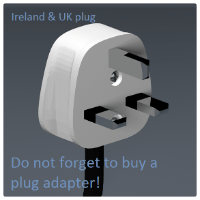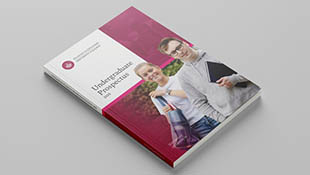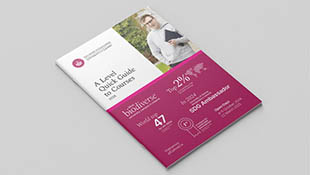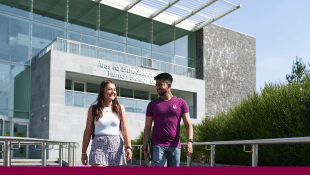-
Courses

Courses
Choosing a course is one of the most important decisions you'll ever make! View our courses and see what our students and lecturers have to say about the courses you are interested in at the links below.
-
University Life

University Life
Each year more than 4,000 choose University of Galway as their University of choice. Find out what life at University of Galway is all about here.
-
About University of Galway

About University of Galway
Since 1845, University of Galway has been sharing the highest quality teaching and research with Ireland and the world. Find out what makes our University so special – from our distinguished history to the latest news and campus developments.
-
Colleges & Schools

Colleges & Schools
University of Galway has earned international recognition as a research-led university with a commitment to top quality teaching across a range of key areas of expertise.
-
Research & Innovation

Research & Innovation
University of Galway’s vibrant research community take on some of the most pressing challenges of our times.
-
Business & Industry

Guiding Breakthrough Research at University of Galway
We explore and facilitate commercial opportunities for the research community at University of Galway, as well as facilitating industry partnership.
-
Alumni & Friends

Alumni & Friends
There are 128,000 University of Galway alumni worldwide. Stay connected to your alumni community! Join our social networks and update your details online.
-
Community Engagement

Community Engagement
At University of Galway, we believe that the best learning takes place when you apply what you learn in a real world context. That's why many of our courses include work placements or community projects.
Living in Galway
Travelling to Galway
PLANNING A JOURNEY WITHIN IRELAND: On the Transport for Ireland website, you will find useful information to help you get around Ireland. You can also download the TFI app.
The service helps people plan their personal journeys from door to door, anywhere in Ireland, and it covers travel by bus, rail, tram, taxis, ferries and on foot, with fully mapped-out route information, printable timetables and details of overall journey times – all in one place.
The principal airports are at Dublin (on the east coast) and Shannon (on the west coast, approximately 130km from Galway), and there is another, smaller airport called Ireland West, located at Knock, around 70km north of Galway.
Dublin to Galway
From Dublin Airport to Galway – Direct
This is the most convenient way to reach Galway. The companies Bus Éireann, Citylink and GoBus all operate frequent direct bus services to Galway, departing from Terminal One of Dublin Airport. The direct bus journey takes between 2.5 – 3 hours.
From Dublin Airport to Dublin City Centre
Dublin Airport is situated around 10 km north of Dublin City. If you wish to visit the city before coming to Galway, you can take the "Airlink" bus, which leaves from directly outside Terminal One: departures are every 15 – 20 minutes. It connects the Airport with Busáras (the central bus station). Check the Dublin Bus website for timetables and further information.
From Dublin City to Galway - by Train:
There is a frequent train service from Dublin (Heuston Station) to Galway each day. The journey takes just over two-and-a-half hours. A train journey to Galway will be more expensive than travelling by bus.
From Dublin City to Galway - by Bus:
There is a regular Bus Éireann service from the Dublin central bus station (Busáras) to Galway. Some of the routes of the private bus operators Citylink and GoBus also stop in Dublin City en route from the Airport to Galway. Please check the websites for full details.
Shannon Airport to Galway
There are regular bus services between Shannon Airport and Galway, run by Bus Éireann. The journey takes approximately one and a half hours.
Arrival in Galway
You should try to arrive in Galway on a weekday and preferably not too late at night, especially if you still have to arrange accommodation. Please note that University offices are not open on Saturdays or Sundays. Check departmental websites for opening hours for student consultations.
Useful Web Addresses
Iarnród Éireann train timetables can be found at: http://www.irishrail.ie/
Bus Éireann timetables can be found at: http://www.buseireann.ie/
Dublin Bus timetables can be found at http://www.dublinbus.ie/
Private Bus Operators from Dublin Airport to Galway: http://www.citylink.ie/ and http://www.gobus.ie/
Dublin Airport Website: http://www.dublinairport.com/
Shannon Airport Website: http://www.shannonairport.com/
Knock (Ireland West) Airport Website: http://www.irelandwestairport.com/
Helpful Hints for our Erasmus Students
All on campus accommodation for Semester 1 has now been allocated. Please check our Accommodation Advisory Service website for information on finding off-campus accommodation in Galway.
Please read this Advice on Rental Scams.
- There are a number of Student Residences in Galway where it is possible to pre-book accommodation - see the Accommodation Office webpage for details of all the approved residences. Please note, however, that the supply of rooms in student residences is very limited and there is no guarantee that you will succeed in booking one.
- The Accommodation Office website provides links to accommodation agencies, flat-hunting websites, local newspapers, etc, but please do heed the advice they give: "We recommend that you do not pay a deposit for accommodation advertised on these websites prior to viewing it, meeting with the landlord and receiving the key to the property".
- For all other forms of accommodation, students need to be in Galway so that they can go and look at the property. You should not book accommodation without viewing it in person (or having a trusted person view on your behalf), and you should never make any payments to private individuals offering accommodation over the internet. You should only pay a deposit when you have met the landlord, viewed the property, received the keys and discreetly checked that the keys do indeed match the lock on the door of the property. BEWARE OF ACCOMMODATION SCAMS.
- You should sign up for "My StudentPad", a message board service operated by University of Galway's Accommodation Office. My StudentPad allows you register your details, indicate your preferred type of accommodation, and get e-mail alerts if suitable accommodation becomes available. It's likely that you will see more house-sharing options becoming available here as the summer progresses and more landlords make contact with the Accommodation Office to advertise rooms.
- The University of Galway Student Accommodation Office does not inspect properties in the private sector. Individual students will need to view these properties personally before committing themselves by signing a lease. NEVER RESERVE A ROOM OVER THE PHONE. Making a reservation in person ensures that you are happy both with the condition of the property and your future housemates.
- Hosting Power specialises in accommodation for international students. You will need to check the location of the rooms offered, however: there are two third-level institutions in Galway, and some of the accommodation offered on this website is on the other side of the city and therefore not ideal for students attending University of Galway. The City Centre, Newcastle and Salthill are the areas most convenient to the University, although there are bus connections to areas further away.
- When you arrive in Galway, it's a good idea to buy an Irish SIM card for your mobile phone, to enable you to make appointments to view accommodation. Phone calls from your home number may be very costly.
Finance
For a comprehensive budget that accounts for all your essential expenses while studying at University of Galway, it's advisable to plan for an estimated monthly expenditure of between €1,500-€1,700. This budget should encompass various key elements, including housing, food, study materials, recreation activities, and transportation, ensuring you have a well-rounded financial budget in place.
For the most accurate and up-to-date information on living costs in Galway, we encourage you to visit the Numbeo website, which provides real-time data and insights into the cost of living in various cities around the world. This resource can help you make informed decisions about your financial arrangements.
To help ease your concerns about money management check out here to find out about costs associated with going to University.
Services you may need
Getting familiar with University of Galway
We recommend that you download the very useful University of Galway App. It will give you access to campus maps, a room location finder, e-mail, Blackboard and other services, information about accommodation, the health unit, printing services, and a host of other features that will simplify your life and improve your experience as a student at University of Galway.
Local and National Travel
If you will be using local buses, a Student Leap Card is a good investment.
Post Offices
There are several post offices in Galway, including one adjacent to the university campus on Newcastle Road. A standard 100g letter to Britain or mainland Europe costs €1.35. The General Post Office, on Eglinton Street, is normally open from 09:00 – 17:30. Smaller post offices may close for lunch.
Climate and Clothing
Western Ireland’s proximity to the Gulf Stream ensures that the temperature in winter rarely falls below 0ºC. However, the climate is damp, so be prepared for frequent rain and wind. Waterproof clothing, a warm jacket or raincoat, an umbrella, and woollen sweaters are essential items for winter wear. These can all be purchased cheaply in the larger chain stores in Galway.
Telephone Services
The main mobile phone providers in Ireland are Vodafone, Meteor, Tesco Mobile and Three. There will be an option of “bill-pay”, where you have an account and monthly charges, or “pay as you go”, where you buy call credit as you need it. There are plenty of mobile phone shops around Galway where you can investigate the various packages. You should shop around to find the one that best suits your own requirements and the duration of your stay here.
Police and Emergencies
A police officer in Ireland is called a Garda Siochána (Irish for "guardian of the peace"). Full details of national and local Garda stations can be found on the Garda website. In Galway, the main Garda station is located in Mill Street, telephone (091) 538000.
If you have an emergency dial 999 or 112 and ask for the service you require. The telephone number for University College Hospital is (091) 580580.
Shopping
City-centre shops and department stores are open six days a week, most closing at 6pm; some larger shops also open until 9pm on Thursdays and Fridays, and many shops also open on Sunday afternoons. Supermarkets are usually open till 9 or 10pm, including on Sundays. If you are cooking for yourself, you will find all the basic foodstuffs are cheapest in the main supermarkets (Tesco, Dunnes Stores, Supervalu, Lidl and Aldi), and some of these also have suburban branches. Most supermarkets will have own-brand foodstuffs, which will be cheaper than regular brands.
Driving in Ireland
A full driver’s licence from other EU countries is valid in Ireland. Traffic in Ireland travels on the left-hand side of the road. Cars can easily be rented provided you have a full driver's licence.
Electricity
The standard mains voltage is 220v. Three-pin plugs are standard on most electrical equipment.

Embassy Addresses
Austria
15 Ailesbury Court, 93 Ailesbury Road, Dublin 4
Tel: 353 1 269 4577; Fax: 353 1 283 0860
e-mail: dublin-ob@bmeia.gv.at
Belgium
2 Shrewsbury Road, Dublin 4
Tel: 353 1 205 7100; Fax: 353 1 205 7106
e-mail: Dublin@diplobel.fed.be
Czech Republic
57 Northumberland Road, Ballsbridge, Dublin 4
Tel: 353 1 668 1135/1343; Fax: 353 1 668 1660
e-mail: Dublin@embassy.mzv.cz
Denmark
Block E, Iveagh Court, Harcourt Rd, Dublin 2
Tel: 353 1 475 6404; Fax: 353 1 478 4536
e-mail: dubamb@um.dk
Federal Republic of Germany
31 Trimleston Avenue, Booterstown, Blackrock, Co Dublin
Tel: 353 1 269 3011; Fax: 353 1 269 3946
e-mail: info@dublin.diplo.de
Finland
Russell House, Stokes Place, St Stephen's Green, Dublin 2
Tel: 353 1 478 1344; Fax: 353 1 478 1050
e-mail: sanomat.dub@formin.fi
France
36 Ailesbury Road, Dublin 4
Tel: 353 1 277 5000; Fax: 353 1 277 5001
e-mail: chancellerie@ambafrance-ie.org
Italy
63-65 Northumberland Road, Dublin 4
Tel: 353 1 660 1744; Fax: 353 1 668 2759
e-mail: ambasciata.dublino@esteri.it
Malta
15 Leeson St Lower, Dublin 2
Tel: 353 1 676 2340; Fax: 01 6766066
e-mail: maltaembassy.dublin@gov.mt
The Netherlands
160 Merrion Road, Ballsbridge, Dublin 4
Tel: 353 1 269 3444; Fax: 353 1 283 9690
e-mail: dub-info@minbuza.nl
Poland
5 Ailesbury Road, Ballsbridge, Dublin 4
Tel: 353 1 283 0855; Fax: 353 1 269 8309
e-mail: Dublin@msz.gov.pl
Portugal
15 Leeson Park, Dublin 6
Tel: 353 1 412 7040/5; Fax: 353 1 497 0299
e-mail: embport@dublin.dgaccp.pt
Spain
17A Merlyn Park, Dublin 4
Tel: 353 1 269 1640; Fax: 353 1 269 1854
e-mail: emb.dublin.inf@maec.es
Switzerland
6 Ailesbury Road, Ballsbridge, Dublin 4
Tel: 353 1 01 218 6382/3; Fax: 353 1 283 0344
e-mail: dub.vertretung@eda.admin.ch
Turkey
11 Clyde Road, Ballsbridge, Dublin 4
Tel: 353 1 668 5240; Fax: 353 1 668 5014
e-mail: embassy.dublin@mfa.gov.tr
United Kingdom
29 Merrion Road, Dublin 4
Tel: 353 1 205 3700; Fax: 353 1 205 3885
e-mail: chancery.dublin@fco.gov.uk
Some Final Points to Remember
- Make sure that you return your Erasmus Application Form by the appropriate deadline.
- Make sure that your travel arrangements enable you to be in Galway for the Orientation sessions.
- If you have to arrange accommodation please arrive at least one week before the start of the semester.
- Please remember to have the following with you on arrival in Ireland:
- Your passport
- Some other form of identification
- Your European Health Insurance Card
- The name of your NUI Galway Erasmus Academic (Departmental) Coordinator
- Letter (e-mail) of Acceptance
- Visa (if required)
Useful Addresses
Ireland West Tourism
Áras Fáilte, Forster Street, Galway
Tel: 353 91 537700
Website: www.discoverireland.ie
Irish Council for International Students (ICOS)
41 Morehampton Road,
Dublin 4
Tel: 353-1-660 5233
Website: www.icosirl.ie
Department of Foreign Affairs
80 St Stephen's Green,
Dublin 2.
Tel: 353-1- 4780822
Website: www.gov.ie/iveagh
Downloads
-

Undergraduate Prospectus 2025 PDF (12.4MB)
-

Postgraduate Prospectus 2025 PDF (3.2MB)
-
Quick Guide to Courses 2025 PDF (1.20MB)
-
.png)
Postgraduate Quick Guide PDF (0.3 mb)
-

A-Level Quick Guide to Courses 2025 PDF (1.04MB)
-

Pre-Arrival Guide 2024 PDF (54.1 MB)
-
.png)
Brazil Student Guide PDF (3.2 MB)
-
.png)
Chile Student Guide PDF (3.1 MB)
-
.png)
Colombia Student Guide PDF (3.1 MB)
-
.png)
Ghana Student Guide PDF (3.4 MB)
-

Hong Kong Student Guide PDF (3.6 MB)
-

Indian Student Guide PDF (3.5 MB)
-
.png)
Indonesian Student Guide PDF (3.2 MB)
-

Malaysian Student Guide PDF (3.6 MB)
-
.png)
Mexico Student Guide PDF (3.1 MB)
-

Nigeria Student Guide PDF (3.4 MB)
-
.png)
North American Student Guide PDF (2.9 MB)
-
.png)
Panama Student Guide PDF (3.1 MB)
-

South African Student Guide PDF (3.7 MB)
-
.png)
Taiwan Student Guide PDF (4.0 MB)
-
.png)
Thailand Student Guide PDF (3.6 MB)
-
.png)
Turkish Student Guide PDF (4.2 MB)
-
.png)
UAE Student Guide PDF (3.4 MB)
-
.png)
Vietnam Student Guide PDF (3.39 MB)
















